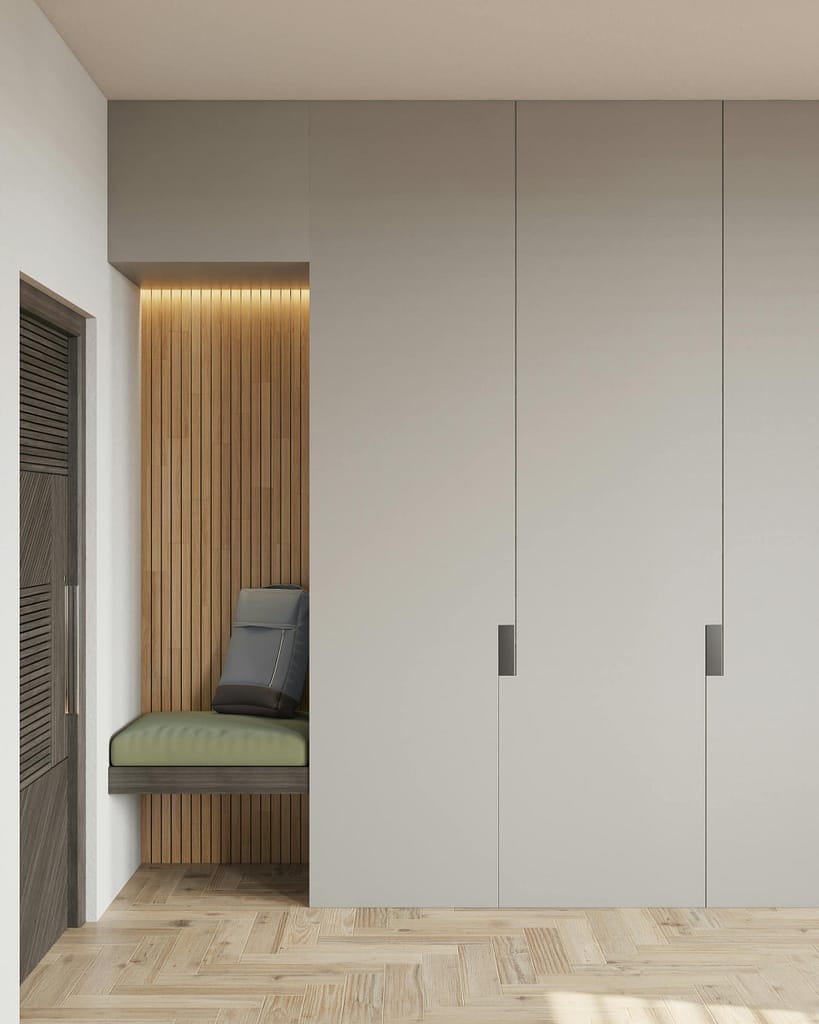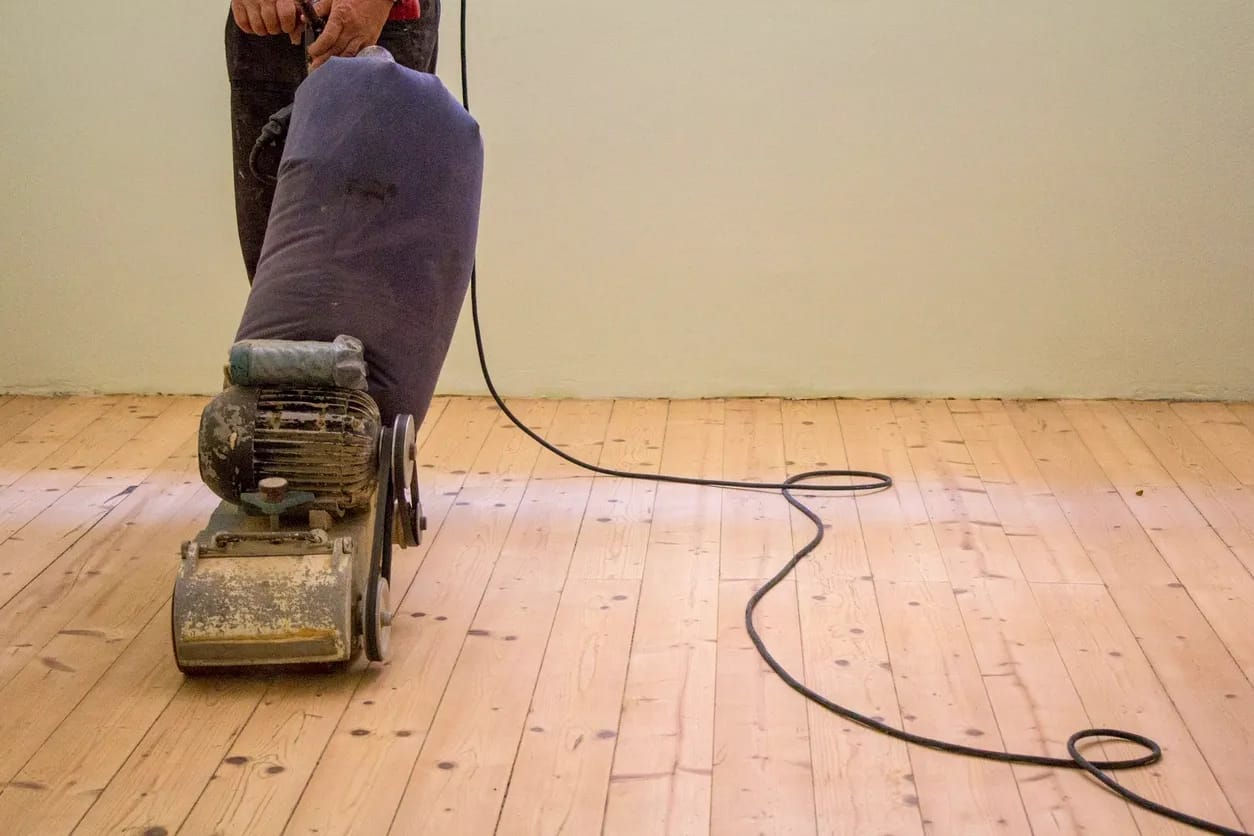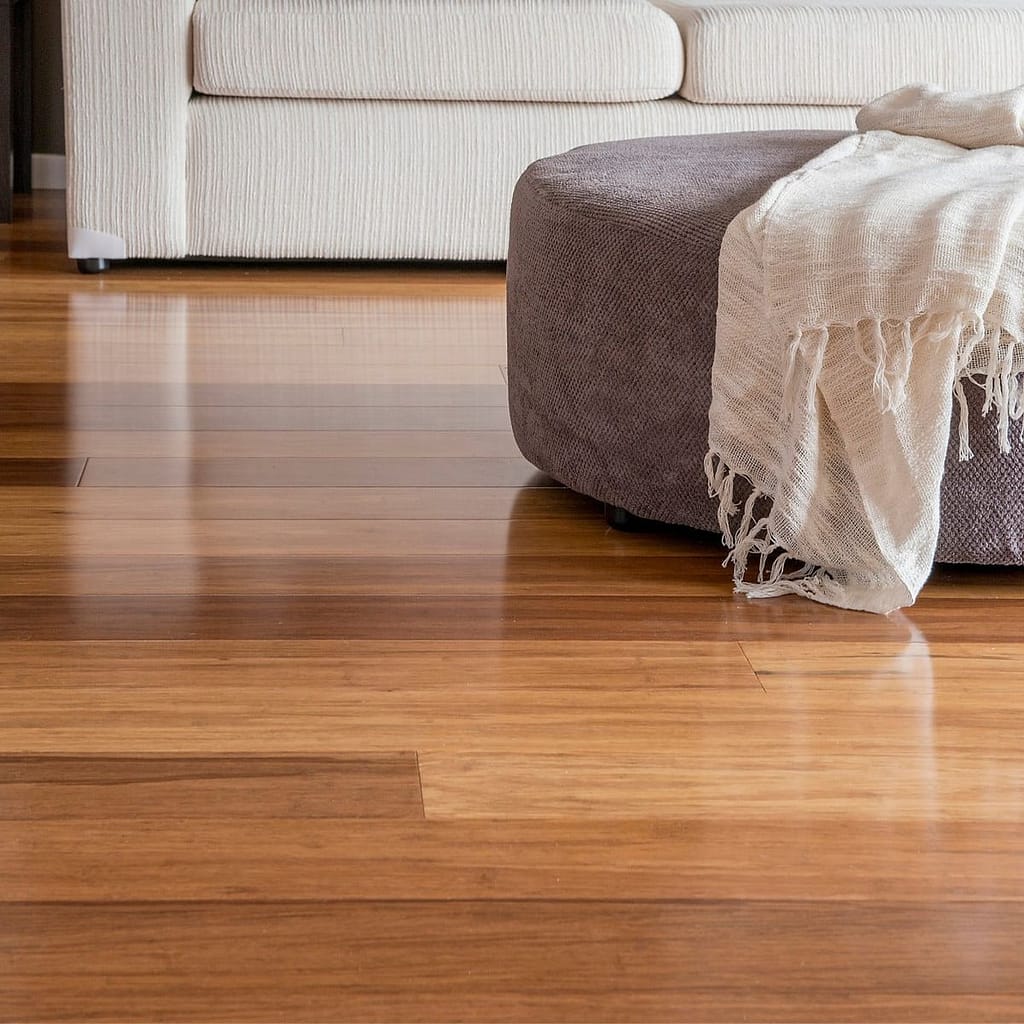- Renovations
Eco-Friendly Flooring: The Benefits of Cork and Other Sustainable Options
When undertaking a house renovation in Vancouver, an often overlooked aspect is sustainability. Eco-friendly flooring options can significantly reduce your home’s environmental impact. Not only that, they can also bring a touch of natural beauty. Cork flooring has seen a resurgence in recent years. We are going to take a look at how it’s made, how much it costs and why it may be the perfect option for your Vancouver house renovation. We are also going to provide some eco-friendly alternatives to cork, and take a deeper dive into bamboo flooring. Conversations with your renovation contractor will help you choose the right option for your renovation.
How is Cork Flooring made?
Cork is made from the bark of Cork Oak Trees. Every 7-9 years they can be harvested, and it does not require the trees to be cut down. They can regenerate and be harvested again in the future.
Sheets are laminated onto medium-density fibreboard (MDF), a wood-based panel. Cork can be treated to resemble hardwood flooring, marble and a variety of other colors and patterns. Traditional fine grain and large grain, are the most popular versions. It is a comfortable surface, as it is softer and spongier than wooden or bamboo flooring. It doesn’t conduct heat very well so maintains a nice temperature in your home.
The Benefits of Cork Flooring
The recent rise to popularity that cork has gained is due to its numerous environmental and practical benefits:
- Sustainability: Cork is derived from the bark of the cork oak tree, which can be harvested without harming the tree itself. This sustainable harvesting process allows the trees to regenerate, making cork a renewable and eco-friendly resource.
- Durability: Extremely durable nature of cork allows it to withstand heavy foot traffic, making it ideal for high-traffic areas in your home, such as hallways, kitchens, and living rooms. Its resilient nature means it can resist scratches, dents, and fading, a great eco-friendly option for a recreation or kids bedroom.
- Sound Absorption: Sound absorption is another great quality of cork, assisting in reducing noise pollution and creating a quieter living environment. It can help to dampen noise from footsteps, appliances, and other sources, reducing sound travel from room to room and floor to floor.
- Comfort: Being warm, and creating a comfortable surface under your feet, makes cork a great choice for bedrooms and living rooms. Its natural cushioning properties reduce foot fatigue and joint pain. This makes cork a more comfortable flooring option than harder materials like hardwood or tile.
Cork is soft, making it a great surface for kids rooms, it is more absorbent than hardwood or tiles and a lot more forgiving for falls and drops.
- Hypoallergenic: Cork is naturally hypoallergenic, making it a great choice for people with allergies or sensitivities. It does not harbor dust mites, mold, or other allergens, promoting a healthier indoor environment.
A Great Alternative
An alternative to cork flooring, coming in at a similar price point is bamboo flooring, both are going to be more expensive than vinyl but a similar price to hardwood or engineered hardwood. These eco-friendly alternatives are becoming popular and can add value to your Vancouver home renovation. Let’s take a look at bamboo;
Bamboo Flooring
Bamboo is a rapidly renewable resource that can be harvested with minimal damage to the environment, every 5 years. Flooring that’s made from bamboo is incredibly durable, harder than many hardwood species, and resistant to scratches and dents. It also offers a stylish and modern aesthetic, with a variety of finishes and colors to choose from.
How is Bamboo Flooring made?
Bamboo is harvested and then prepared for production, stalks are sliced, and outer skin and nodes are removed. These strips are then boiled in a solution of boric acid or lime. This removes starches and sugars and kills any pests that may be in the bamboo.
These strips bare dried and flattened before being soaked in an adhesive solution and then laminated under heat and pressure. The bamboo boards are planed, sanded, and milled into a tongue and groove or click and lock format floorboard. A final protective coating is applied to make them strong and scratch/wear resistant.
The Benefits of Bamboo Flooring
Solid bamboo flooring is a similar product to hardwood and can be installed in the same way, it has similar strength and life to hardwood and engineered hardwood. Bamboo is considered a more eco-friendly product as bamboo only takes 5 years to mature, versus a much longer time to grow trees for hardwood flooring.
Caution: Stick to 100% solid bamboo flooring products. There are cheaper alternatives that contain filler and even toxic binders that can emit VOCs over time. Stay away from engineered bamboo flooring which only contains a thin layer of bamboo veneer and is not as strong as solid bamboo flooring. These inferior products often contain bamboo that was harvested too early, resulting in a weaker product.
Enlisting professionals to help with your Vancouver home renovation ensures that you’re given expert advice and buy a quality product that is covered by warranty and installed correctly.
Other Eco-Friendly Flooring Options
In addition to cork and bamboo, there are some other eco-friendly flooring options to consider for your Vancouver house renovation. These options have specific applications for certain rooms, and when installed correctly can enhance the space and value of your property.
- Recycled Materials: Flooring made from recycled materials, such as recycled rubber or plastic, offers a sustainable and stylish option. Recycled rubber flooring is particularly popular for home gyms and playrooms, as it provides excellent shock absorption and is gentle on joints. Recycled plastic flooring is a durable and low-maintenance option that can be used in various settings, including kitchens and bathrooms.
- Natural Stone: Natural stone, such as marble or slate, is a durable and timeless choice. However, it’s important to choose ethically sourced and sustainably mined stone to minimize its environmental impact. Natural stone flooring can add a touch of luxury and elegance to your home, and it can also help to regulate temperature and humidity.
Final Thoughts
When selecting eco-friendly flooring for your Vancouver house renovation, consider factors such as durability, maintenance requirements, and personal style. By making sustainable choices, you can create a beautiful and environmentally friendly home. These flooring options are resistant to water and can sustain spills and heavy use, much like hardwood or engineered hardwood, the softer surface could well be a better alternative for your house. Keep in mind future buyers who may value a more environmentally friendly option.
Related Posts
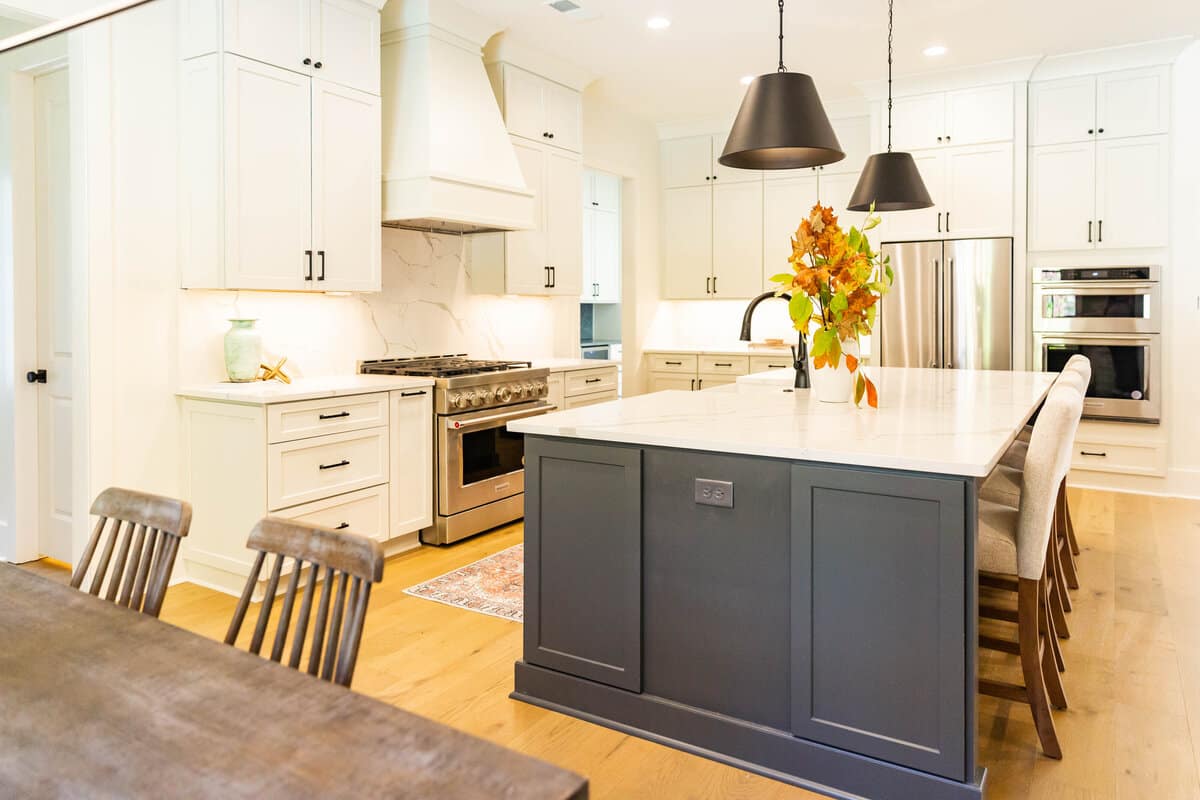
Condo Kitchen Renovation Vancouver: Strata Rules, Scheduling & Approvals
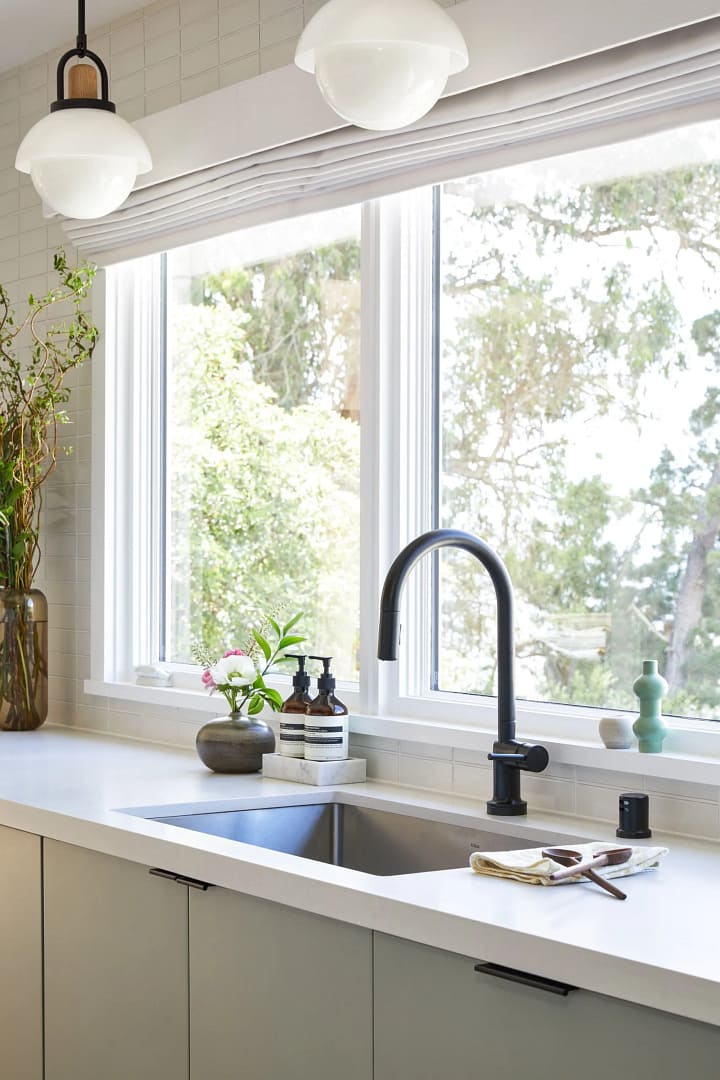
How Long Does a Kitchen Renovation Take in Vancouver? Timeline by Scope
Start Your Renovation Journey Today!
Drop us a line and a member of our team will reach out to you as soon as possible!
